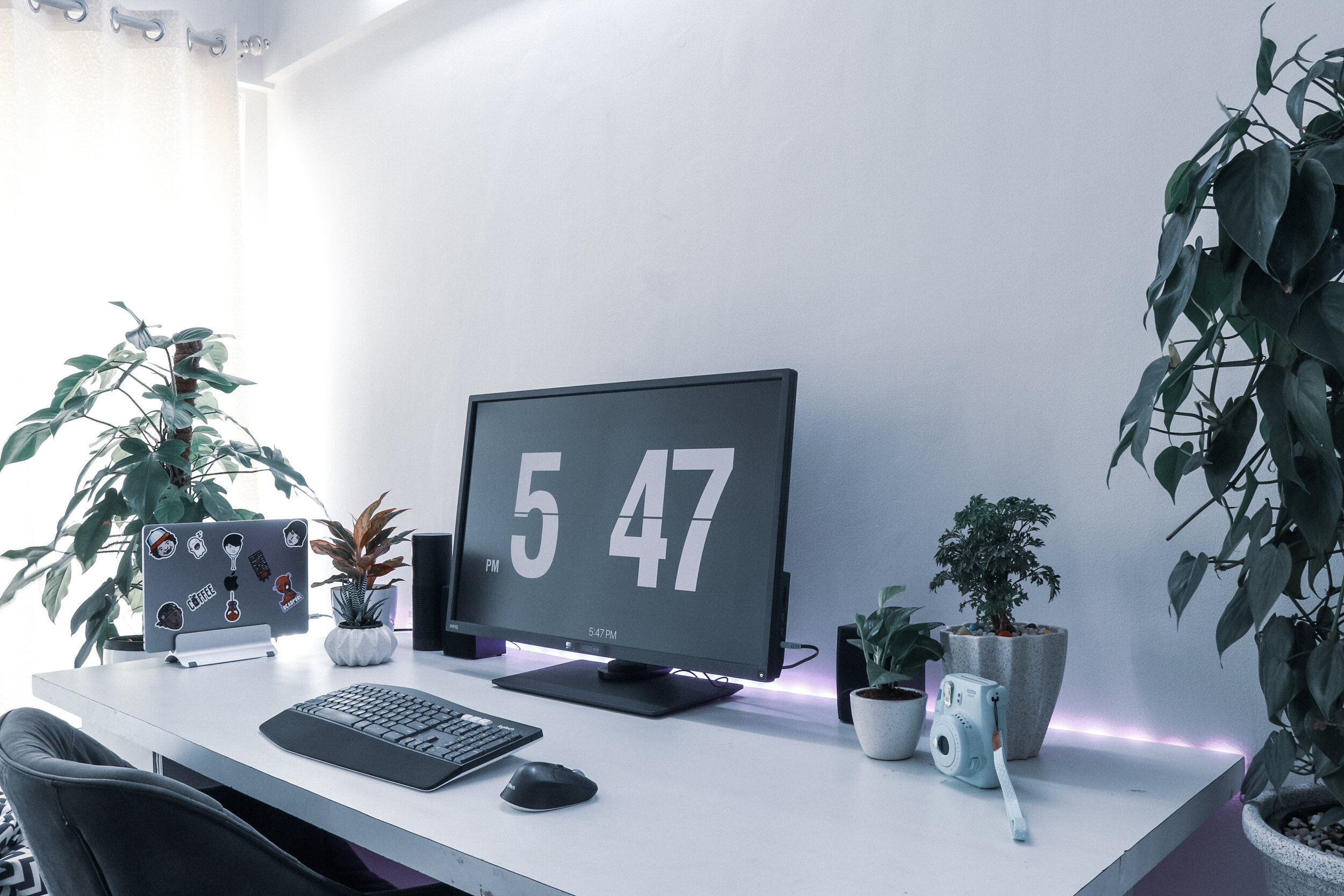Workplace Trends: 2020s
I originally wrote a draft of this blog post in March, when Coronavirus seemed like a news story from far away that in all likelihood would't significantly affect us - how wrong we were! Surprisingly though despite the huge impact that Coronavirus is having, and will continue to have to our lives I don't think it really changes my original predictions of what working life will be like by the end of the decade. I have updated the content since then, but the headings and overall predictions are the same - I am, however, fairly confident that those differences will now occur far sooner than they would have in a non-corona world.
Working from Home

Here are some pretty crazy statistics, courtesy of the Office of National Statistics (ONS). In 2019, 75% of the UK's working population had never worked from home [source]. Fast forward to the week commencing 23 April 2020 and over 49% worked from home just in that one week [source]. Whilst that is clearly not an organic change - people are working from home because they have to, not because they choose to - I believe it will mark a turning point.
Sitting at the dining room table with cables draped across chairs clearly isn't going to be for everyone, but for some, and especially for those that have the ability to work at a dedicated space, it will ignite a desire to do this more often. Whether because of the reclaimed commute time, the ability to set a 'do not disturb' status when focussing, the lack of temptation from the communal biscuit tin, not having to listen to Martin tell something to 'F off' every two minutes because it's not working, or simply being away from the office environment, we'll see more people wanting to work from home either permanently, or I suspect most likely, for a few days each week.
The other significant factor here will be employers attitudes towards home working. Despite many studies suggesting it can increase productivity there seems to be some skepticism - now that we've essentially been forced to work from home, the resultant change in productivity should be measurable for those employers. If it turns out that there is an increase, no change, or only a small drop in productivity, this is likely to lead to a change in attitude. Some employers may even start to actively encourage it as part of a drive to reduce costs and remove or downsize their current office footprint.
Flexible Working

Another of the changes that the COVID-19 situation has thrown upon us is a need for flexible working. With schools closed, many people have had to juggle working from home with looking after, and in some cases, homeschooling their children. Many companies offer a variant of flexible working - most commonly this is the core hours concepts, whereby you can vary your start and end times each day, so long as you are present during the 'core hours' (typically 10am - 4 pm).
The 2020's will see a progression of this, allowing people far more flexibility in how they fulfil their hours - whether this be by spreading them differently throughout the week, taking a long lunch but therefore staying later, or even something far more ad-hoc based around their work and lifestyle commitments. Perhaps being in the office for 8am for an early meeting, but then popping out for half an hour at 10 to grab a coffee with a mate.
For some people the traditional 8 hours work, 8 hours play, 8 hours sleep works, and will continue to work, very well. However, for others, perhaps we can start to break those blocks and mix them up a little.
ROWE

The term ROWE is one that I only heard of very recently, but the concept is one I've been interested in for a while. It stands for Results Only Work Environment - it's is a fairly opinionated strategy and although it seems to be gaining some traction I think really I'm talking here about measuring people according to their outcomes rather than their inputs or outputs.
Inputs are the efforts that people put in, outputs are the tangible results of those inputs, and outcomes are the resultant impacts or changes that those outcomes produce. Consider the following scenarios for a team that is tasked with setting up an e-commerce website.
The team plan to analyse every e-commerce platform provider on the market and investigate the possibility of a custom solution using an external agency, as well as creating a prototype using an in-house development team.
The team search google for “e-commerce website platform” and use the platform that appears first.
The team research customer needs and a few of the popular e-commerce platforms on the market. They plan to select a provider that meets the majority of their requirements and allows for custom extensibility so that they can adapt or migrate in the future if necessary.
Although this is, of course, a rather contrived example it highlights the point that by focusing on inputs we lend ourselves to teams that put in a lot of work, but potentially produce no results - in this case no decision on which provider to choose and that focusing on outputs can lead to production of results that are ineffective or not relevant. With that and the above two trends in mind, working from home and flexibility in hours I think it becomes sensible to measure peoples performance not on how many hours they are sat at a desk for, but on the difference they make - especially where that difference may be enabling others to be more effective.
Only by measuring outcomes can be be sure of the real value that our work has added.
The Millennium Bug
I've mentioned this before in a previous blog, but to state the obvious once again - someone born in the year 2000 will turn 20 this year, and by the end of the decade will be aged 30. Obvious right? But also, I think, significant. These people are known as Generation Z and are defined by having used technology from a very young age, being very comfortable with the internet and, particularly, social media. They are a generation that, on the whole, have never known a world in which data is not at your fingertips. A United Nations, Cushman & Wakefield study suggests that by 2030 almost a third of the global working population will be Generation Z individuals.
I think that the end of the decade will mark a turning point as at 30 years old some of these people are likely to then be in management or leadership positions and collectively will be beginning to define the future direction of their industries. That, to me, is a really exciting prospect and I'm looking forward to seeing how it plays out.
Final Word
Since the industrial revolution the establishment of the eight hour working day people have demanded more control over their working environments. In the UK all employees have a statutory right to request flexible working and recent advances in technology have added greater options for this. That's really the theme of my predictions - in essence I think the 2020s will be all about giving people greater flexibility and choice regarding how, when, where and why they work.